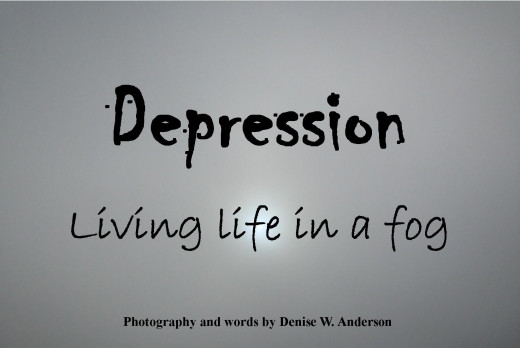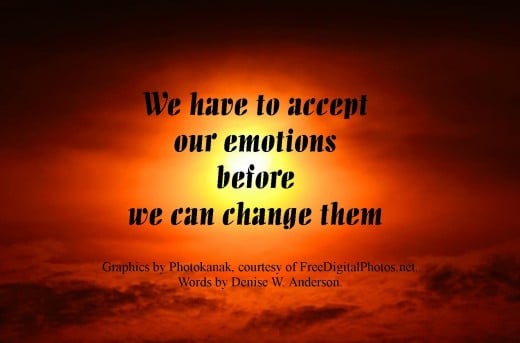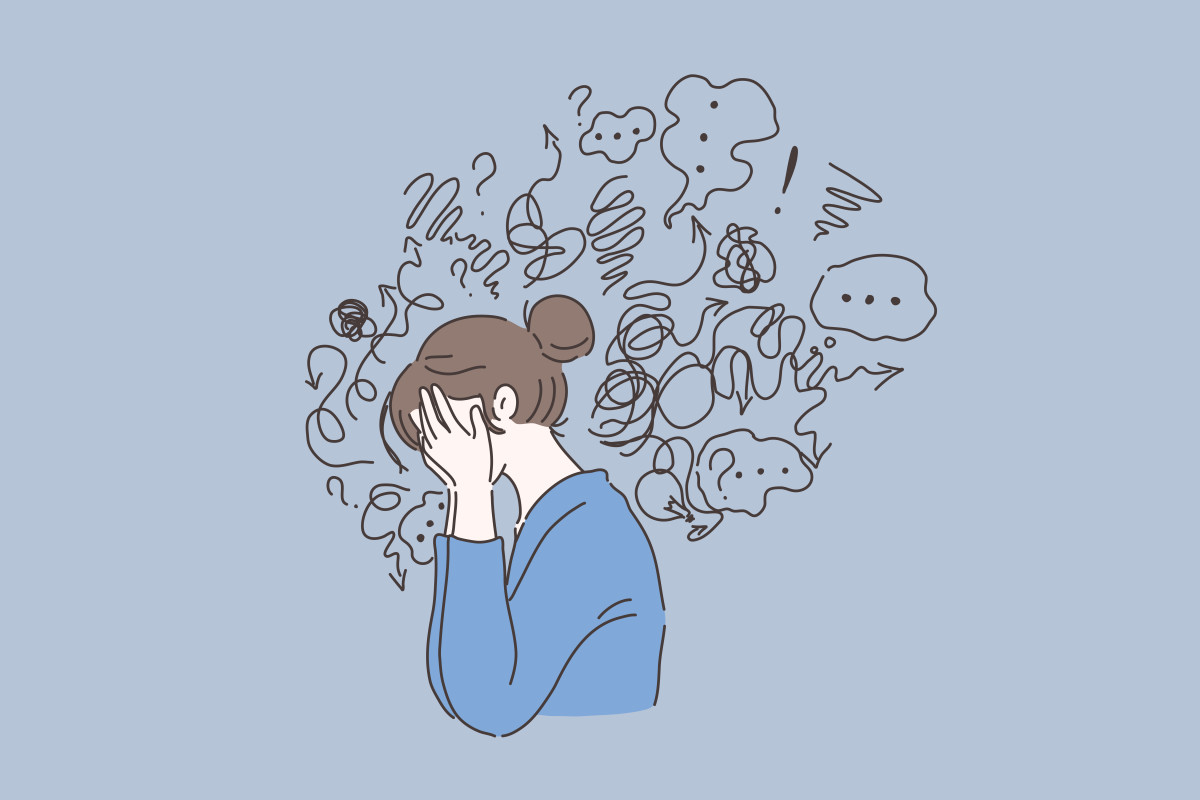What is Depression Made Of?

Depression*
Hello Depression, come on in! It's really good to see you! All the others have abandoned me. You'd think I had the flu!
They didn't want to hear me talk of troubles I am having. They'd rather speak of politics, prose, and the money they are making.
But me, I never have enough of anything, you see. I feel deprived of happiness, no one cares about me.
My life is really worthless now, I'm not good enough to live. Even my Father in Heaven will not his Spirit give.
You're the only one who really cares, so I'll hang on to you. I can hide behind your face. Please stay! I really need you!
Have you ever been depressed?
How does depression feel?
Depression has many faces. At times, it feels like anger. Nothing is going right, no matter how hard we try. We just can't get on top of things.
At other times, it is more like sadness. We long for what might have been, could have been, or even should have been, if only life were different.
Sometimes depression is a nagging fatigue that won't go away. We rest and rest, but no matter how much we rest, it is not enough. We drag our feet and hang our heads as if it were the end of the world.
Then there are the times when we don't feel anything at all, just an empty nothingness that settles into the bones, a lingering ache that can never be satisfied. We wander around as though we are lost in a great desert where nothing grows or lives.
Depression robs us of the desire to do anything. Former activities lose their appeal. Time ceases to exist. There is no motivation to try or do. Life becomes a mere litany of habitual motion with no meaning or purpose.
Life is a daily battle when you are fighting dragons. It is so hard.... Time goes by slowly.... No one seems to understand. Sometimes, it just isn't worth even trying anymore....
— D. W. AndersonWhat causes depression?
Depression does not come from a single source, rather it is a combination of complex factors that come together at a particular moment leaving the brain and body void of the ability to "cheer up" or "pull out of it."
Positive thinking does not solve depression, rather, it taunts the depressed into a further downward spiral, leaving additional feelings of hopelessness and helplessness.

Risk Factor
| Issue
|
|---|---|
Genetic predisposition
| People who suffer from depression will likely have children that suffer as well.
|
Chemical imbalance
| Those with glandular imbalances such as low thyroid, fluctuating female hormones, or adrenaline issues, may develop depression.
|
Distorted thinking patterns
| Perfectionism, exaggerated thoughts, doubt, self-criticism, and negative self-talk lead to depression.
|
Chronic stress
| High levels of stress for long periods of time are detrimental to the brain and body and often result in depression.
|
Abuse
| Those who have experienced abuse often have low feelings of self-worth, making them more susceptible.
|
Substance use
| Mind altering chemicals compromise important functions of the brain, increasing the incidence of distorted thoughts that lead to depression.
|
Trauma
| Traumatic events alter our world view of ourselves and others, leaving us at high risk for depression.
|
Disabilities
| Physical and mental disabilities make life more difficult, and depression is a common side effect.
|

Where can we get help?
The first step in dealing with depression is to determine that we have it. Since many illnesses have symptoms that mimic depression, it is wise to see our general health practitioner for a thorough physical evaluation, including blood work and screenings appropriate for our age level and risk factors.
Once we know that our physical health is not an issue, then a referral for mental health treatment is in order. Depression symptoms that hang on for weeks on end are dangerous, both to us personally and those that we love. More lives are lost because someone didn't think that these things were worth checking out.
If we think that someone we love is suffering from depression, it is up to us to make sure that they get help. This may require making some phone calls, arranging their schedule for medical evaluation, and supporting them while they cannot make wise decisions for themselves. Time is of the essence.
SUICIDE WARNING -- Depression carries a high risk of suicide. Anybody who expresses suicidal thoughts or intentions should be taken very seriously. Do not hesitate to call your local suicide hotline immediately. Call 800-SUICIDE (800-784-2433) or 800-273-TALK (800-273-8255) or the deaf hotline at 800-799-4889.
Why does depression come back?
Once we know that we have depression and are able to accept what it does to us, we are in a position to learn how to manage it. Like a chronic illness, depression hangs around, coming and going when we least expect it. Our ability to understand the triggers, how they affect us, and what we can do to change our feelings, determines the quality of life we will have.
Understanding the triggers
Triggers are events or circumstances that bring our depression to the forefront of our minds. Like light switches that allow electricity to flow to a light fixture, triggers turn on certain thought patterns and emotions. Once we recognize what these triggers are, we can plan our life in such a way that we keep them to a minimum.
How they affect us
Triggers put us in compromising situations with ourselves. We may think that we are doing well, and then we stumble upon a trigger, and boom, we are back in the throes of depression. For example, rejection is a common trigger. When some people experience rejection, their feelings of self-worth plummet immediately.
What we can do to change our thoughts, feelings and actions
Once we know what these triggers are, we can put in place a plan of action that enables us to regain our feelings of self-worth. Using the example of rejection, having an affirmation such as the one below gives us something to tell ourselves that helps to ward off depression.

When does healing take place?
Healing from depression is a long process. Medication takes weeks to make a difference. Therapy is ongoing, and may require us to do things that are difficult or feel uncomfortable. We may have to work through years of emotional baggage that we have been carrying around.
We gradually feel the depression begin to lift when we notice little things that make us smile. Perhaps we are able to make eye contact with a friend again, or we see the sun shine through a break in the clouds. We feel snippets of happiness and grab onto them like a child reaching for a favorite cookie.
We may even feel that we are finally beginning to live, that the past is just a fading memory, a surreal place that we only went to visit, knowing that we didn't want to stay. We begin to live life with a greater sense of worth, gratitude, and purpose.
Now is the time to prepare. There will be other bouts with depression. As we fortify ourselves, we build a world that will help us to deal successfully with depression. We can:
- Develop a support system of people who care that can be called at a moment's notice
- Learn the tools for changing our thoughts, feelings, and actions
- Discover the distorted thinking patterns we are using and how to refute them
- Journal about what we are doing and how we are feeling
- Build feelings of self-worth through the use of affirmations
There will always be new triggers that we don't anticipate. Stress, life changes, and loss bring new issues to the forefront that are like storms beating down our feelings of self-worth. The preparations we make will help us to keep ourselves on an even keel.
Even if we do relapse, it is not the end of the world. We have fought our way out before, and we can do it again. As we renew our efforts, we will remember the things we have learned and be able to use them for our benefit. We will also find that we recognize depression in others and are able to help them.
Healing*
Is this really happiness and joy that I am feeling?! It's been so long, it seems like years, my head with glad thoughts is reeling! Just yesterday the clouds were there hiding the bright sun. But now they're gone, the light comes in. I can actually have some fun!
I can run and skip, jump and play, and smell all of the roses. I watch a child, so innocent, and marvel at cute feet and toesies. I feel a sense of newness, of freshness in my life. Gone is the pain and sadness I felt, the frustration and the strife.
The Lord is now a part of me, like he's never been before. I know him well, he's at my side, He's opened up the door. I gave my burden unto him, it had become so heavy. I could no longer carry the load; my body and soul were weary.
All I must do is walk with him, and work along by his side. He points to others that I can help through his Spirit, that in me abides. As long as I continue to love and serve as he, My burden he will carry, and walk alongside of me.
*The poems Depression and Healing are by Denise W. Anderson.
© 2015 Denise W Anderson








